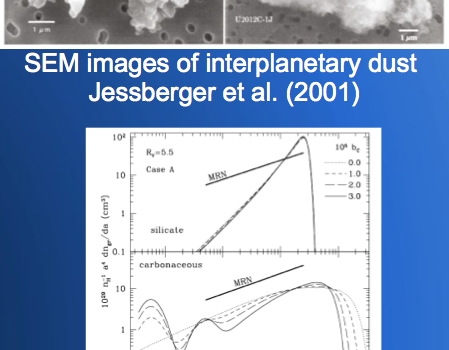Accelerated Simulations of Cosmic Dust Heating Using the Intel Many Integrated Core Architecture

Cosmic dust absorbs starlight in the optical and ultraviolet ranges, and re-emits it in the infrared range. This process is crucial for radiative transport in our Galaxy. I am participating in a project to develop a computational tool for Galactic radiative transport simulation with stochastic light absorption and re-emission on small dust grains. This project has resulted in the development of a library called HEATCODE (HEterogeneous Architecture library for sTochastic COsmic Dust Emissivity) for fast calculation of the stochastic dust heating process using Intel Xeon Phi coprocessors.
I presented HEATCODE and shared my experiences with the development and optimization of applications for Xeon Phi coprocessors in a talk at the Applied Mathematics and Statistics Department at UCSC. The slides from this talk can be downloaded here (see below). The full source code of the application, along with a detailed description of the optimization process, will soon be submitted for peer-reviewed publication, and will become publicly available.
Slides from the talk: